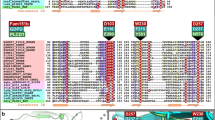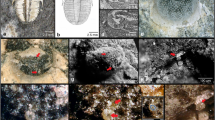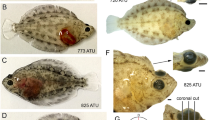Abstract
IN Mrs. Sexton's important paper1 on “Degeneration and Loss of the Eye in the Amphipod Gammarus chevreuxi” she makes one remark which, in its suggestion of theoretical controversy, is in striking contrast with the mass of details of observation, and minute records of genetical facts, of which the rest of the paper consists. The sentence to which I refer is: “In view of all that has been written on the origin of the blind fauna, it is a significant fact that blind animals could be produced within the limits of a single species in such a short time and in so few generations”.
This is a preview of subscription content, access via your institution
Access options
Subscribe to this journal
Receive 51 print issues and online access
$199.00 per year
only $3.90 per issue
Buy this article
- Purchase on Springer Link
- Instant access to full article PDF
Prices may be subject to local taxes which are calculated during checkout
Similar content being viewed by others
References
J. Mar. Biol Assoc., May 1932.
Author information
Authors and Affiliations
Rights and permissions
About this article
Cite this article
CUNNINGHAM, J. Degenerative Mutations. Nature 130, 203–204 (1932). https://doi.org/10.1038/130203b0
Issue Date:
DOI: https://doi.org/10.1038/130203b0
This article is cited by
-
Single nucleotide mapping of trait space reveals Pareto fronts that constrain adaptation
Nature Ecology & Evolution (2019)
Comments
By submitting a comment you agree to abide by our Terms and Community Guidelines. If you find something abusive or that does not comply with our terms or guidelines please flag it as inappropriate.



